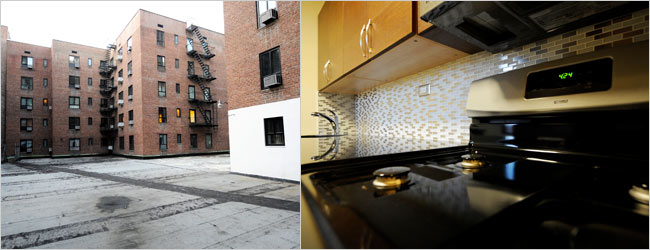The following is an excerpt of an article in The New York Times by Elizabeth A. Harris that talks about NaBors Apartments’ efforts to become more environmentally responsible.
Stephen Vernon is the president of a 112-unit co-op in Inwood called Nagle Apartments that has tried hard to become more environmentally responsible. The residents of the three-building complex started simply about five years ago by upgrading the lighting with motion sensors and more efficient bulbs. Then they moved on to larger projects.
“Our goal,” Mr. Vernon said, “was to do green projects that made fiscal sense.”
Almost all of the windows were replaced and new radiator valves were installed, at a cost of about $860,000. To cover the costs of these and other upgrades, the building took out a two-part loan and the development authority brought down the interest, leaving the residents with an average rate of 4.31 percent.

Through a combination of selling apartments that the co-op owned, interest on investments (it owns some Treasury bonds), and energy savings, the improvements were made without an assessment or maintenance increase.
These days, the building’s boiler spends a great deal of time resting comfortably on the lowest setting, and gas consumption has decreased by around 40 percent.
Now, the building is looking into putting in a green roof — layers of plantings and soil.
Green roofs keep the top of a building cool and provide a layer of insulation. They also retain rainwater, which can help keep the city’s sewer system from being overwhelmed in a heavy rain. But some consultants say that you’ll get more bang for your buck keeping the roof cool with white or silver paint and that a building will be better insulated with traditional materials like fiberglass. Green roofs are, however, much nicer to look at — and hang out on — than the alternative.
Another initiative that the co-op is undertaking is environmentally friendly renovations. As rental apartments become vacant, the co-op makes them over for sale. It uses recycled materials where possible, installs energy-efficient appliances and decorates with low- or nontoxic paints and finishes. One of these apartments, a 900-square-foot two-bedroom, is on the market for $359,000.
The sales agent, Matthew Bizzarro of Stein-Perry Real Estate, who also lives in the building, says that he has priced it a bit higher than comparable apartments in the area. Traffic has been good, he says, and has included people who say the green factor appealed to them.
Read the whole article in The New York Times.

